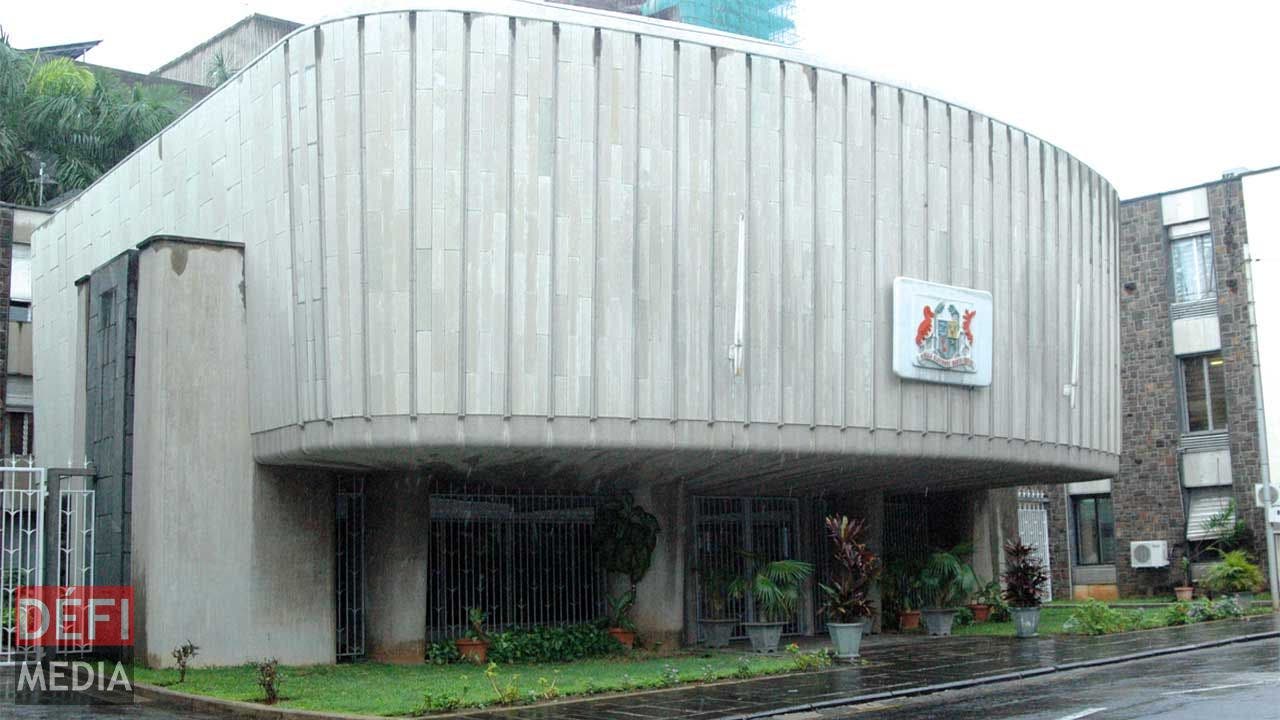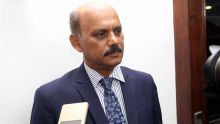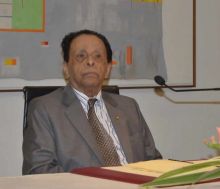
Year in year out, the National Audit Report highlights major wastage of public funds in the administration of the country’s affairs. The report for the 18 months, ranging from January 2015 to June 2016, was released on Tuesday and as expected, there were some major shortcomings in the way taxpayers’ money is utilized.
Publicité
 Ministry of Health : Exaggerated expenses
Ministry of Health : Exaggerated expenses
The Ministry of Health has been subjected to much criticism. The amount of money spent on overtime and medicine are exaggerated. 2,961 employees, that is, 24 per cent of the staff (all grades) have drawn Rs 714 million, that is, 61 per cent of all the overtime/allowances paid by the Ministry during the year 2015-16. Besides, there are cases noted whereby employees were working continuously for twenty-four hours over consecutive days. Two telephonists at Brown Sequard Hospital worked on the same dates on several occasions and overtime paid to them amounted to some Rs 1.46 million and Rs 1.4 million respectively during the 18 months covered by the report. This represented 462.8 and 456.8 per cent respectively of their basic salaries.
Moreover, the Audit Report showed that the New Operation Theatres and Wards at Victoria Hospital were still not operational although seven months had elapsed since the handing over of the building in October 2014. “Four items of medical equipment were not yet supplied while others already commissioned were not yet used. Bid exercises for seven items of equipment were cancelled and new tenders had to be re-launched,” states the Report.
 Weaknesses have been observed over the methadone at the dispensing points at Victoria Hospital and Jeetoo Hosptial. Patient attendance was not properly recorded and the correctness of quantity dispensed and returned could not be ascertained.
Weaknesses have been observed over the methadone at the dispensing points at Victoria Hospital and Jeetoo Hosptial. Patient attendance was not properly recorded and the correctness of quantity dispensed and returned could not be ascertained.
The value of expired items waiting for write off or disposal at the Central Supply Division (CSD) amounted to Rs 108.9 million. During the period August 2015 to February 2016, drugs worth some Rs 44.3 million from Section A (Pharmaceutical Products) were disposed on a piece meal basis by a Service Provider but Certificates of Disposal were not signed. Moreover, expired reagents, at the Central Health Laboratory (CHL), to the value of some Rs 19 million were recommended for write off in June 2013. Other expired ones were found in the Stores of the CHL and at Yves Cantin, Flacq and ENT laboratories.
Ministry of ICT
Several flaws have been noted in the technology services. From 2011 to 2015, the Information and Communication Technologies Authority (ICTA) collected Rs 1.36 billion from licensed operators and donated Rs 200 million to the Consolidated Fund. As of 2012, ICTA revenues have doubled. From December 2011 to December 2015, funds from the company’s bank account rose from Rs 306.3 million to Rs 876.9 million. The ICT Act does not act as the Mauritius Revenue Authority Act or the Tourism Authority Act.

As a result, it is unclear what income the organization has received from the Consolidated Fund. The Audit Office therefore requests the Government to review Section 20 and 21 of the ICT Act concerning the management of these funds. The Ministry of Finance had to inject Rs 510.6 million to Mauritius Post Ltd that had made the request to continue its operations. With regard to the payment of pensions to employees and although the government had recommended the establishment of a technical committee, nothing was done. Regarding Wi-Fi in schools, several sites did not work but there was disbursement of Rs 345 million.
Ministry of Education
Mauritius projects itself has a knowledge Hub. Investments were made to set up universities but at the end, the projects have been left unattended after millions were spent. The total project value for the construction of the three campuses Reduit, Montagne Blanche and Pamplemousses including consultancy and management fees was Rs 760.2 million.
 “In the context of the Budget 2015-16, government had decided to use the buildings of the three campuses being set up at Reduit, Montagne Blanche and Pamplemousses to house polytechnics for courses in ICT, Tourism and Hotel Management and Health Care courses. Government has invested around Rs 760 million in infrastructure, equipment and facilities which were lying dormant for almost a year and from which no benefits have been derived. The project value which has already reached some Rs 760 million will require additional funds of some Rs 75 million to make them operational as polytechnics.”
“In the context of the Budget 2015-16, government had decided to use the buildings of the three campuses being set up at Reduit, Montagne Blanche and Pamplemousses to house polytechnics for courses in ICT, Tourism and Hotel Management and Health Care courses. Government has invested around Rs 760 million in infrastructure, equipment and facilities which were lying dormant for almost a year and from which no benefits have been derived. The project value which has already reached some Rs 760 million will require additional funds of some Rs 75 million to make them operational as polytechnics.”
The Report also highlighted that the Ministry did not obtain value for money for security service. Payment was also effected for services not provided. “Some Rs 76.4 million were spent by the Ministry of Education and Human Resources, Tertiary Education and Scientific Research from January 2015 to June 2016 to pay six service providers for security services in some 300 schools/institutions.”
Unnecessary expenditures were made to the former Dr. O. Beaugeard Government School. Due to security risks, it was recommended that a portion of the building to be demolished. Classified as a historic building, the National Heritage Fund Board objected to its demolition. Moreover, an injunction from the Court was obtained in November 2006 and the contract was canceled in July 2007, but an amount of Rs 1.34 million had been spent on the preliminary proceedings. New work began until November 2013 when a non-governmental organization (NGOs) was granted a ban by the Court to stop work. The contractor obtained the sum of Rs 266 910 as compensation. The Audit report points out that the ministry has failed to safeguard a building that is not only a government property but also has historical value. It is thus stated that “the measures to be taken to ensure that all the items have been properly stored to prevent deterioration and theft. Payments to contractors amounted to some Rs 13.74 million at 30th June 2016 could be considered as nugatory. Most ‘salvable’ materials paid for have disappeared.”
Ministry of Public Infrastructure
The Ministry of Public Infrastructure and the National Transport Authority have been criticized in relation to the management of parking vouchers. The Audit Office says it has been observed that false parking coupons are being sold in the country, which implies significant shortfalls for the state. However, the Ministry of Public Infrastructure has pointed out that it is fully aware of the case and that actions have been taken. The police were alerted. The ministry also announced plans to hold consultations with the police force to amend the Road Traffic Act.
Another criticism regarding distribution contract for Student Identity Cards was allocated to a firm on 1 September 2005 did not escape the Audit office. It has been revealed that after the introduction of free transport, a company obtained the contract to distribute 90,000 cards at a rate of Rs 20 per unit.
However, the Ministry of Finance asked the National Transport Authority (NTA) to seek the Public Procurement Office (PPO)’s expertise in February 2009 as part of the renewal of the contract. The PPO then explained that the company could not be offered another three-year contract and had suggested a period of six or twelve months. But the NTA had ignored these recommendations. A new three-year contract was therefore awarded to the same company to further contract renewals in 2014 and 2017. The Audit office estimates that Rs 16.1 million were paid to the supplier between 2013 and 2016 including an additional Rs 7.1 million 2016. The Audit Office therefore recommends that the NTA issue invitations to tender for better proposals.
Ministry of Tourism
The audit objective was to assess whether strategies adopted to sustain the sector were efficiently and effectively implemented and whether tourism infrastructure was adequately maintained. Government spent Rs 1.3 million in the preparation of TSSP 2009-2015. “The responsibilities for implementing the strategies were assigned to the Ministry, its agencies and other stakeholders. However, the Plan was instead used by the Ministry as guidance for Programme Based Budgeting purposes. As regards other stakeholders, there was no indication as to whether the Plan was being used by them. An assessment was not carried out to identify the constraints and challenges that prevented the full implementation of the Plan.” The cost incurred by the Ministry on the implementation of the strategies adopted to sustain the tourism sector during the period 2009 to 2015 amounted to some Rs 3 billion, including some Rs 2.8 billion as grants to MTPA and TA. “In TSSP 2009-2015, it was recommended to increase penetration in markets. However, no strategies and targets were proposed. Hence, it was difficult to keep track of progress made in increasing penetration in the markets. There was a drop in arrivals from France going down from 275,599 in 2009 to 254,323 in 2015. The decline in the French market was compensated by increases in market share from other emerging ones due to measures taken to shift the focus from Europe. Thus, there had been a marked increase of tourist arrivals from China and India during the period, which increased from 46,177 in 2009 to 161,719 in 2015.”
 Krish Ponnusamy: “Public money should be spent properly”
Krish Ponnusamy: “Public money should be spent properly”
Mauritius is based on the Westminister System and it is a constitutional obligation for the National Audit Office to remit an audit report to the Minister of Finance who in turn will present it to the National Assembly, states Krish Ponnusamy. “The National Audit Report is given to Public Accounts Committee. It is parliament who institutes the Public Accounts Committee. Civil servants come to the Public Accounts Committee to lodge their complaints. However, the Committee does not have the power to debate on issues raised. It is sad that the National Audit Report is not subjected to any debate in parliament. Every year, the same things come before us. But nothing is done.”
He argues that it is now time to get proper reforms. “The government must initiate proper legislation and procedures to know why and how money is being wasted. For example, on the case of rent being paid for unoccupied space, it is necessary to know who is responsible. Public money should be spent properly. Wasting can be minimised but that need proper framework. If the Public Accounts Committee is given the power to operate, then wasting of public money can be minimised.”
 Radhakrishna Sadien: “There is a lack of transparency”
Radhakrishna Sadien: “There is a lack of transparency”
President of the State Employees Federation Radhakrishna Sadien explains that each year, the same situation repeats itself. “It is important for the public to know how their money is being spent. This time in the report, various anomalies have been observed. One of the most exaggerated is the overtime paid to certain employees. Payment of overtime means many positions have not been filled. The government thus relies on overtime to get the job done. For better productivity, it is essential to have a life-work balance. Another shortcoming is the computerised medical records. It did not work as it should have. It was supposed to make documentation and records easier. Campuses and rented buildings are unoccupied while large amounts of money are being paid for it.”
He questions the lack of transparency and lack of control. He welcomes the introduction of an institution based on the French “Cour des Comptes.” “Everyone should assume their responsibilities so that public money is not wasted. If the introduction of such an institution can bring a change then why not in Mauritius. It is high time for regular evaluation with administration. Everyone must assume their responsibilities at various levels. So, monitoring of different projects is a must.”
If waste of money continues, Mauritius will not be able to achieve its economic growth targets, says Radhakrishna Sadien. “There is lack of seriousness. The population expects better outcome and a better service. So, it is wise to spend the public money correctly.”

Notre service WhatsApp. Vous êtes témoins d`un événement d`actualité ou d`une scène insolite? Envoyez-nous vos photos ou vidéos sur le 5 259 82 00 !
























